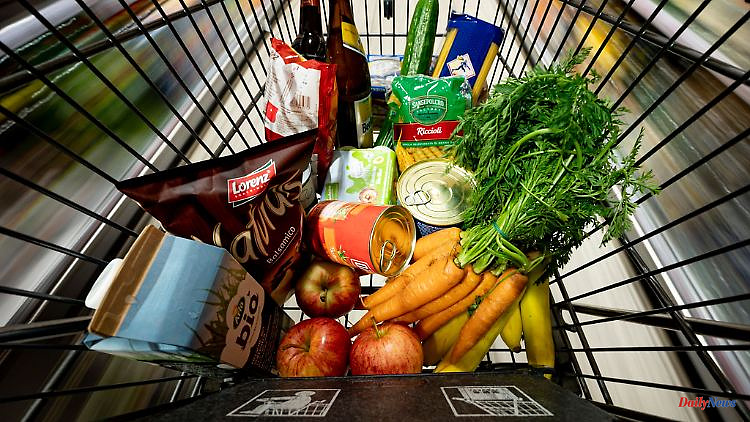The increase in consumer prices in Germany weakened slightly in November. The inflation rate is expected to reach 10.0 percent, as reported by the Federal Statistical Office in an initial estimate. Economists surveyed had expected the figure to remain unchanged for the month that was coming to an end.
The strong inflation in Germany surprisingly weakened in November due to lower oil prices. According to the Federal Statistical Office, consumer prices rose by an average of 10.0 percent compared to the same month last year. In October, the inflation rate was 10.4 percent, its highest level since 1951. Economists surveyed had expected the figure to remain unchanged for the month that was coming to an end. From October to November, prices fell by 0.5 percent.
"A silver lining on the horizon," commented the chief economist at Berenberg Bank, Holger Schmieding, on the decline. "With luck, we'll have the inflation peak behind us." Energy prices rose particularly sharply as a result of the Russian war against Ukraine: it cost an average of 38.4 percent more than in November 2021, after it had even risen by 43.0 percent in October. Food rose by 21.0 percent and services by 3.7 percent. However, experts are not yet giving the all-clear, despite falling inflation.
"We are approaching the summit, but it is still too early for a storm of enthusiasm," said ING chief economist Carsten Brzeski. There is still a lot of inflationary pressure. "From January, many consumers will have to pay more for electricity," Schmieding pointed out. "That could push the inflation rate up again." After that, however, the price pressure should decrease considerably. In the expected winter recession, companies would have little chance of passing on higher costs to their customers. So-called base effects will be added from March. "Then we will no longer compare the current prices for energy and food with the lower pre-war prices, but with the high prices since the beginning of the war," said Schmieding. In the spring of 2024, the inflation rate could even fall to around two percent.
Almost every second company in Germany wants to increase its prices in the coming months, as the Munich IFO Institute found out in its monthly survey. The barometer for price expectations fell to 46.7 points in November after having stood at 51.3 in October. How much the companies want to increase their prices is not asked.












